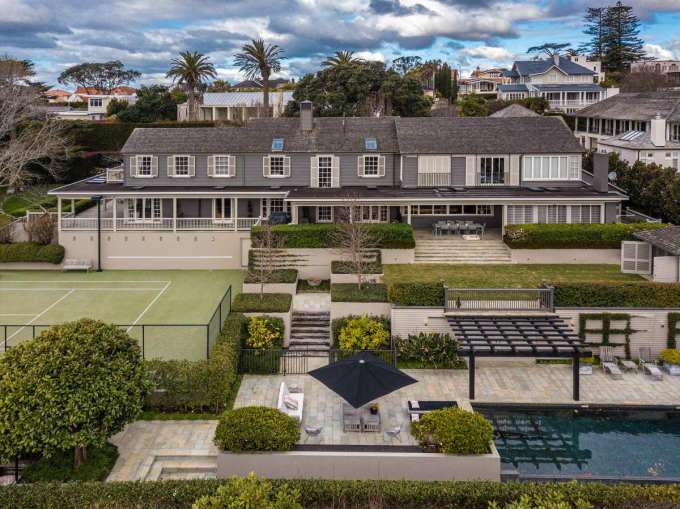COMMENT: It’s an extremely hot property market right now. The number of suburbs with median property values of $2 million or more has more than tripled in the last 12 months, with one, Herne Bay, very close to becoming New Zealand's first $3 million suburb. The top end of the market in these suburbs has done extremely well during the post-Covid surge. Just this week, there was news that a mansion in Auckland's Remuera sold for $15.5 million.
READ MORE: Find out if your suburb is rising or falling
That's a lot of money to spend on a house, even for those who are well-off. And while there are rich-listers who have the necessary funds to finance such a purchase on their own, it's likely that most buyers at that level still require bank assistance. So how do you get a mortgage on a $15.5 million home?
First up, your deposit, and if you have heart issues, look away now. While it is technically possible to get a mortgage in New Zealand with a 10% deposit, banks, under the current rules, much prefer a 20% deposit. But for rich-lister homes, the deposit required is at least 30% deposit, which on a $15.5 million property is $4.65 million.
Start your property search
Banks require a larger deposit because luxury properties are typically harder to sell, with only a thin slice of society being able to afford them. They can therefore only risk lending up to 70% of the home’s value.

This Remeura home sold in August last year for $15.5 million. Photo / Supplied
Some interesting facts around that $4.65m deposit: it is 310 times the average savings found in a KiwiSaver account, which means most Kiwis would have to round up 309 friends to be able to pull together that kind of money.
Alternatively, someone on the national median wage of $55,000 would need to put 100% of their salary into a savings account for the next 84 years to reach the required deposit. (This would also require significant tax avoidance - not condoned - and some optimism that house prices would stay flat until the early 22nd century, so may not be a good strategy).
It becomes clear very quickly that, like around 65% of their peers, a first home buyer purchasing a $15.5m property is probably going to need help from the Bank of Mum and Dad. At this point, the bank would need to see is that the buyer had saved a comparatively tame $775,000 (5%) on their own, with the remaining $3.875 million coming as a gift or long-term loan from parents. (Hot tip: you might be able to make some money on YouTube posting reaction videos of you asking for a $4 million loan.)
Now let’s look at the income required for a $10.85 million mortgage. Current interest rates of 2.3% are in your favour and if you can convince the bank to give you an interest-only loan for couple of years, you’ll only be paying around $250,000 a year in interest, which works out to be a mere $4800 a week.
But remember, the banks will want know that you could afford your mortgage even if interest rates increased. So they will calculate your ability to repay your loan over 30 years with a 6.5% interest rate. This means, after expenses (of which rates and property maintenance will feature prominently) you need to have around $16,000 per week left in your account to pay your mortgage. Assuming you have no other debts - chop up those credit cards - and you can prove that your super yacht is reasonably low-maintenance, your annual income would need to be at least $1.3 million before tax to even get a look in at the bank for a mortgage.
Or you can keep your fingers crossed that you have a winning Lotto ticket.
* All numbers are approximate and don’t imply pre-approval for finance.
- Rupert Gough is the founder and CEO of Mortgage Lab and author of The Successful First Home Buyer.










































































